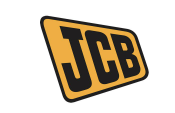JCB Digger-Info

Construction, agriculture, waste handling, and demolition equipment are all manufactured by the JCB Company, which is situated in Rocester, England. It operates 22 plants in Asia, Europe, North America, and South America, producing over 300 different machines such as backhoes, excavators, tractors, and diesel engines and selling them in over 150 countries.
History Of JCB Excavators
Joseph Cyril Bamford created the JCB Company in Uttoxeter, Staffordshire, England, in October 1945. He hired a 3.7 by 4.6 metre garage with a lock (12 by 15 ft). He made his first vehicle, a tipping trailer, out of war leftover components and a welding set he got second-hand from English Electric for £2-10s (= £2.50). Steel sheet, which had previously been used in air raid shelters, was used on the sides and bottom of the trailer. He sold the trailer at a neighbouring market for £45 (plus a part-exchanged farm cart) on the same day his son Anthony was born, and built another trailer right away. He used to work at Eckersley's coal yard at Uttoxeter, where he made automobiles. The original trailer, as well as the welding set, were both saved.
The JCB welding machine was the first of its kind.
JCB's very first vehicle (a farm trailer)
Six persons worked for the company in 1948, and they created Europe's first hydraulic tipping trailer. It relocated to an old cheese factory in Rocester in 1950, employing six people. He began painting his items yellow a year later. In 1953, he unveiled his first backhoe loader, which was the first time the JCB logo appeared. The concept was co-created by Derby Media and Leslie Smith, an advertising designer. The "hydra-digga," a machine that combines an excavator and a large loader into a single all-purpose agricultural and construction machine, was invented in 1957.
The first JCB hydraulic tractors were introduced to the North American market in 1960, and they have since proven to be a long-term success. JCB was the first and is now the most popular brand in the world. JCB had sold roughly 3,000 3C backhoe loaders by 1964. The JCB 7 was introduced the next year as the world's first 360-degree excavator.
The Loadall machine was first introduced in 1978. The following year, JCB began operations in India. In 1991, the company formed a joint venture with Sumitomo of Japan to manufacture excavators, which lasted until 1998. A JCB plant was established two years later in Pooler, Georgia, near Savannah, and a manufacturing facility in Brazil opened the following year.
The twenty-first century has come to an end.
The European Commission fined JCB €39.6 million in December 2000 for violating European Union antitrust laws. The fine was connected to sales limits outside of allocated areas, purchases amongst authorised distributors, bonuses and fees that limited out-of-territory sales, and the occasional joint fixing of resale pricing and discounts across multiple territories. JCB filed an appeal, and the European Court of First Instance upheld part of it while decreasing the original sentence by 25%. The latest appeal JCB filed with the European Court of Justice was refused in 2006, and the reduced penalty was increased by €864,000.
The JCB444 diesel engine, the company's first design and build, went into production in 2004. In 2005, JCB bought a company for the first time in nearly four decades when it bought Vibromax, a German equipment producer. The corporation built a second factory in Pudong, China, the same year. By 2006, the company had grown to 4000 employees, more than doubling its workforce since 1975.
Following the launch of an architectural design competition managed by RIBA Competitions in 2007, planning for a new £40 million JCB Heavy Products site began, and by the following year, the company had begun to relocate from its old site in Pinfold Street in Uttoxeter to the new site beside the A50; the Pinfold Street site was demolished in 2009. JCB declared plans to make India its largest production hub during that year. Its factory at Ballabgarh, Haryana, was supposed to be the world's largest backhoe loader manufacturer.
JCB cut 2,000 positions during the recession, but said in 2010 that it will hire up to 200 additional employees.
Until 2016, the corporation was a member of the CBI corporate lobbying group. Following the Brexit vote in June 2016, it was reported in October 2016 that JCB had left the CBI. Since 2007, JCB and affiliated Bamford organisations have donated £8.1 million in cash and kind to the Conservative Party in the United Kingdom. Anthony Bamford, the chairman of JCB, donated £100,000 to Vote Leave, the official pro-Brexit group.
The firm encourages children of all ages to engage in constructive play, and has developed JCB Explore, a website dedicated to encouraging children and their parents to participate in outdoor activities.
JCB Excavator Models
The X Series excavators, which range from the JZ70 (7-tonne zero tail swing excavator) to the JS460, are an improved version of JCB's J series Tracked 360° excavators (46-tonne tracked excavator).
At the 2008 Con exposition, JCB unveiled a new top-of-the-line JS520 with a new style paint job with black rams. The JS130W to the JS200W are wheeled 360° excavators. A monoboom or a triple-articulated boom can be used to construct machines. The company's electric digger (19C-1E) won the MacRobert Award, the UK's most prestigious engineering innovation award, in July 2020.
See this link for more information on JCB mini excavators:
https://www.jcb.com/en-gb/products/mini-excavators
Swift Digger Hire Kent
tel:01233 542411